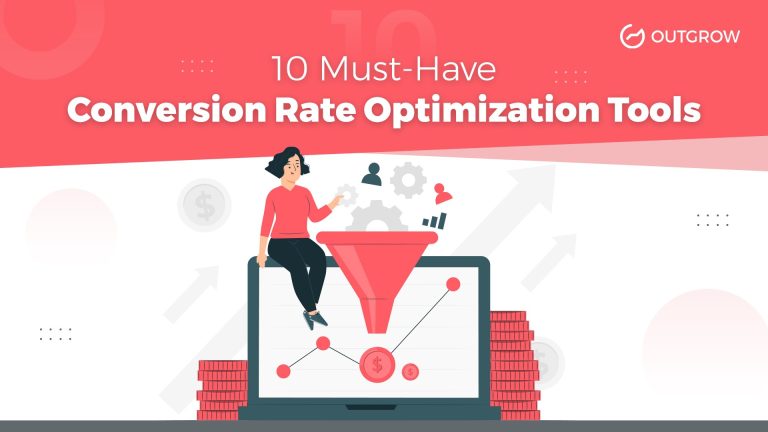NetSuite Inventory Management: Key Concepts & Best Practices
Managing your inventory can be a game-changer for your business. With NetSuite Inventory Management, you can streamline processes, gain real-time visibility, and optimize stock levels. Say goodbye to manual errors and hello to efficient tracking and fulfillment. Whether it’s reducing carrying costs or improving order accuracy, NetSuite offers robust solutions that contrast with traditional inventory management systems. This blog will delve into the benefits of NetSuite Inventory Management, from enhancing productivity to meeting customer demands seamlessly.
Key Concepts in Inventory Management
Importance of Accurate Inventory Tracking
Accurate inventory management is crucial for businesses to meet customer demand and maintain smooth operations. It helps prevent stockouts, overstocking, and unnecessary costs. By tracking inventory levels effectively, businesses can ensure that they have the right products available when customers need them. For instance, a retail store with inadequate inventory tracking may run out of popular items, leading to dissatisfied customers and lost sales opportunities.
Accurate inventory data enables businesses to make informed decisions about purchasing and production. Without precise information on stock levels and product demand, companies may end up tying up capital in excess inventory or facing shortages during peak demand periods.
Role of Demand Forecasting in Inventory Management
Demand forecasting plays a pivotal role in effective inventory management. By analyzing historical sales data and market trends, businesses can predict future customer demand more accurately. This allows them to adjust their reorder point and safety stock levels accordingly.
For example, a company using sophisticated demand forecasting techniques might anticipate an increase in product demand during certain seasons or promotional events. As a result, they can adjust their inventory levels proactively to meet this anticipated surge in customer orders while minimizing excess stock during slower periods.
Inventory Optimization Strategies
Implementing sound inventory optimization strategies, such as just-in-time (JIT) methodologies or ABC analysis (categorizing items based on value), can help minimize carrying costs while ensuring sufficient stock availability. JIT aims to reduce storage space requirements by receiving goods only as they are needed for production or sale.
ABC analysis involves categorizing products based on their contribution to overall revenue; “A” items are high-value goods requiring tight control whereas “C” items are lower-value goods needing less attention.
Advantages of Implementing NetSuite for Inventory Control
Streamlined Visibility and Control
Implementing NetSuite for inventory management offers the benefit of streamlined visibility and control. This means that businesses can easily track their inventory levels, locations, and movements in real-time. With this enhanced visibility, companies can make informed decisions about purchasing, stocking, and fulfilling orders. For example, a company using NetSuite can quickly identify slow-moving items or stock shortages and take immediate action to rectify the situation.
The integration with other business processes is another advantage of implementing NetSuite for inventory control. By seamlessly integrating with accounting, order management, and customer relationship management (CRM) systems, NetSuite ensures that all aspects of the business are interconnected. This integration eliminates the need for manual data entry across different platforms, reducing errors and saving time. For instance, when an item is sold through an e-commerce platform integrated with NetSuite, the inventory levels are automatically updated across all channels without any manual intervention.
Enhanced Accuracy in Inventory Data
Moreover, NetSuite enhances accuracy in inventory data by providing real-time updates on stock levels and transactions. This helps prevent overstocking or stockouts by enabling businesses to maintain optimal inventory levels at all times. Additionally, NetSuite’s advanced reporting capabilities allow businesses to analyze historical data trends to forecast demand accurately.
NetSuite’s Impact on Working Capital Through Inventory Management
Efficient Cash Flow Management
NetSuite’s inventory management system plays a crucial role in cash flow management for companies. By accurately tracking inventory levels and demand, businesses can optimize their purchasing decisions, ensuring that they only invest in the stock needed to meet customer demands. This smart approach prevents tying up excessive cash in surplus inventory, freeing up capital for other strategic investments.
Improved Capital Allocation through Optimized Inventory Levels
One of the key impacts of implementing NetSuite’s inventory management is the enhanced ability to allocate capital more effectively. By leveraging accurate demand forecasting and automated replenishment processes, companies can ensure optimal stocking levels without tying up excessive resources in slow-moving or obsolete items. As a result, businesses can redirect these freed-up funds towards revenue-generating activities or strategic initiatives that drive growth.
Essential Features of NetSuite’s Warehouse and Inventory System
Real-time Inventory Tracking Capabilities
NetSuite’s inventory management system offers real-time tracking capabilities, allowing businesses to monitor their stock levels as they fluctuate. This feature enables companies to stay updated on the availability of products, ensuring that customer orders can be fulfilled promptly. For example, when a product is sold or shipped, the system automatically updates the inventory count in real time.
Multi-location Warehouse Management
NetSuite’s warehouse and inventory system supports multi-location management, which is beneficial for businesses with multiple warehouses or storage facilities. This capability allows companies to efficiently manage their supply chain across different locations while maintaining centralized control over inventory operations. For instance, if a customer places an order from a specific region, the system can automatically determine the nearest warehouse with available stock to fulfill the order promptly.
Managing Multi-Location Inventory with NetSuite
Consistent Inventory Visibility
Managing NetSuite inventory allows businesses to have consistent visibility across multiple locations. This means that whether a company has one warehouse or several, they can see exactly what they have in stock at any given time. For example, if a retail business has stores in different cities, the inventory management system enables them to monitor stock levels at each location simultaneously.
NetSuite’s centralized control ensures that companies always know where their products are and how much of each item is available. This level of insight helps prevent stockouts and overstock situations by providing real-time data on inventory levels across various sales areas.
Streamlined Transfer Processes
With NetSuite, transferring inventory between locations becomes more streamlined. When one store needs additional items that another location has in surplus, the transfer process is simplified through the system. The ability to quickly move goods from one place to another ensures that customer demand can be met efficiently without delays.
Moreover, fulfillment processes are also enhanced with NetSuite’s capabilities. Whether orders come from multiple channels like online sales or in-store purchases, businesses can fulfill them seamlessly using the centralized inventory data provided by NetSuite.
- Businesses gain consistent visibility across all their selling channels.
- Transferring surplus stock between locations becomes more efficient.
- Fulfillment processes for orders from multiple channels are streamlined with NetSuite’s capabilities.
Inventory Replenishment and Stock Control Methods in NetSuite
Just-in-time Approach
NetSuite inventory management offers the just-in-time approach, enabling businesses to reduce excess stock and associated carrying costs. This method ensures that items are ordered only when needed, preventing overstocking and minimizing storage expenses. By implementing this strategy, companies can streamline their operations and improve cash flow by investing in inventory only as required.
The just-in-time approach also supports a lean production process by eliminating waste and enhancing overall efficiency. For instance, a company using NetSuite’s inventory management system can set up automated triggers to reorder products based on real-time sales data or predefined stock levels. This helps prevent stockouts while avoiding unnecessary surplus inventory.
Demand-Driven Replenishment Strategies
With NetSuite, businesses can leverage demand-driven replenishment strategies to optimize their inventory control processes. By analyzing customer demand patterns, companies can accurately forecast future requirements for each item in their inventory. This allows for proactive planning of replenishment orders based on anticipated demand fluctuations.
By adopting this method, organizations can respond more effectively to market dynamics and customer preferences while minimizing the risk of overstocking or understocking specific items. For example, a retail business using NetSuite’s demand-driven replenishment features might adjust its order quantities based on seasonal trends or promotional activities to ensure optimal stock levels without tying up excessive capital in unsold merchandise.
Automated Reorder Point Calculations
One of the key advantages of utilizing NetSuite’s inventory management capabilities is the ability to automate reorder point calculations. The system factors in lead times, historical consumption rates, and safety stock considerations to determine optimal reorder points for each item within the inventory.
This automation not only saves time but also reduces the likelihood of human error when calculating reorder points manually. As a result, businesses can maintain adequate stock levels without constant manual intervention while mitigating the risks associated with inaccurate forecasting.
Best Practices for Small Business Inventory Management with NetSuite
Informed Decision-Making
NetSuite’s inventory management offers customizable reporting tools that allow small businesses to gather and analyze data effectively. By customizing reports, businesses can track key metrics such as stock levels, sales performance, and order fulfillment. This enables informed decision-making based on real-time insights into inventory movement and customer demand.
Small businesses can create reports tailored to their specific needs, whether it’s analyzing fast-moving items or identifying slow-moving products. For example, they can generate reports on stock turnover rates to optimize inventory levels and minimize carrying costs. With this level of customization, businesses can make strategic decisions to improve operational efficiency and meet customer demands more effectively.
Scalable Solutions
NetSuite provides scalable solutions for growing businesses by offering flexible inventory management features that adapt to evolving needs. As a business expands, its requirements for managing inventory also change. NetSuite allows small businesses to scale up their operations without the need for significant system overhauls or disruptions.
The platform supports multi-location management, which is essential for expanding businesses with multiple warehouses or retail outlets. This scalability ensures that small businesses can efficiently manage their growing inventories without compromising accuracy or control over stock levels.
NetSuite’s inventory management empowers small businesses with cost-effective control measures that help optimize resources while reducing unnecessary expenses associated with excess stock or inefficient processes.
NetSuite’s integrated approach streamlines various aspects of inventory control such as purchasing, receiving, fulfillment processes – resulting in cost savings through improved operational efficiency.
Why Choose SuiteDynamics for NetSuite Implementation?
Customized Expertise
SuiteDynamics offers expertise in customizing NetSuite to meet specific business needs. This means that businesses can tailor their inventory management system to fit their unique requirements, whether it’s related to industry-specific regulations or internal processes. For example, a pharmaceutical company may need specialized tracking and reporting features for its inventory due to stringent compliance standards.
By leveraging SuiteDynamics’ expertise, businesses can ensure that their inventory management system is optimized for maximum efficiency and accuracy. This could involve customizing workflows, data fields, or reports within NetSuite to align with the organization’s operational structure and goals.
Seamless Integration
One of the key advantages of choosing SuiteDynamics for NetSuite implementation is the seamless integration it offers with existing systems. Whether a business already uses CRM software, e-commerce platforms, or other enterprise solutions, SuiteDynamics can facilitate a smooth integration process. For instance, if a company has an established order processing system in place, SuiteDynamics can configure NetSuite to seamlessly communicate with this system without disruptions.
Summary
You’ve delved into the essential aspects of inventory management and witnessed how NetSuite revolutionizes this crucial business function. From optimizing working capital to streamlining multi-location inventory, NetSuite offers a comprehensive solution for businesses of all sizes. With SuiteDynamics as your implementation partner, you can harness the full potential of NetSuite’s warehouse and inventory system, empowering your business to thrive in today’s competitive landscape.
Now that you’ve gained insights into the game-changing capabilities of NetSuite for inventory management, it’s time to take action. Explore how NetSuite can elevate your inventory control and propel your business towards unprecedented efficiency and profitability.
Stay in touch to get more updates & news on Discover Tribune!






